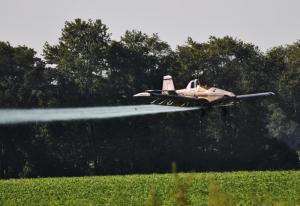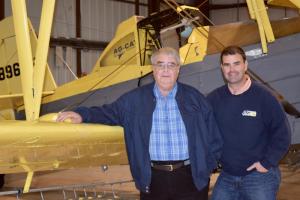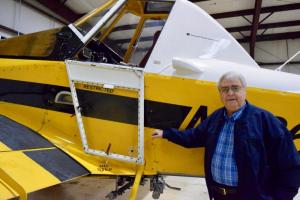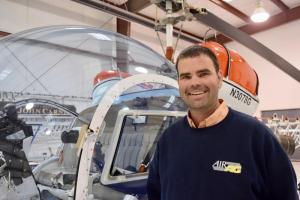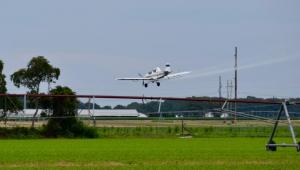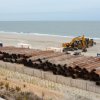Watching the aerial acrobatics of small planes as they dip only a few feet above Sussex County farm fields, some people may wonder if ag pilots are flying for the thrill.
Crop-dusting, now known as aerial application, has become as much a part of agriculture as farming itself. Farmers depend on ag pilots to seed and treat their crops for pests, weeds and other diseases.
As development transforms farmland in Sussex County, agricultural practices are more and more likely to clash with the concerns of new residents.
Allen Chorman doesn't sugarcoat the problem. The 71-year-old was born and bred in Sussex County and has stayed closed to home because of his love for open space, farming and that warm, country feel.
“This is a beautiful place to live, and now they're all finding out,” he said. “I've flown all over Sussex County all my life, and looking down, there's nothing I'd rather do. But it doesn't look like it used to.”
Development in the Cape Region has pushed the Chorman pilots – and many farmers – further west.
More residents often means more questions – and it can mean more complaints.
Chorman said he's proud his aerial aviation company, Allen Chorman & Son Inc., had only three complaints last year.
His son, 38-year-old Jeff Chorman, said he aims to run the business professionally – which means informing the public about what they're doing if needed, and making sure their applications are precise and pose no threat to neighbors.
“Everything we do now is tracked,” he said, adding each of the company's planes is fitted with $20,000 worth of GPS equipment that follows every movement and application to ensure work is done properly and precisely.
Christopher Wade, Delaware Department of Agriculture pesticide manager, said companies like Allen Chorman & Son follow a laundry list of regulations, including oversight from the Federal Aviation Administration, U.S. Environmental Protection Agency and several state departments. They're also subject to constant inspections and licensing.
“They're not just out there spraying everything,” Wade said. “It's really a science that depends on wind, rain and specific plants and insects.”
Wade said passersby and neighbors have nothing to worry about, but they should use common sense if they see an ag pilot working the fields. Poor practices are investigated and can lead to fines, he said.
Every pesticide has some level of toxicity, but the pilots – and the farmers – say they aren't fans of wasting product or harming the environment they depend on.
“Some people get upset they're spraying, but in order to feed everybody and have the yields you need, sometimes you have to spray,” Wade said. “If you live next to a field, it's fine for you to watch and take pictures. But be smart about it. The closer you get to the field, the more you increase your risk.”
Technology has changed since Joe Hudson started his crop-dusting business in 1950, a business Allen Chorman later took over. The engines are bigger and better, and the chemicals are different. They're usually applied in liquid form, which is why the term crop dusting has giving way to aerial application.
Expensive GPS equipment that tracks every movement is not a requirement, Jeff Chorman said, but it ensures accuracy in case someone claims their car or child was sprayed with deadly chemicals.
“We've been here a long time, and we're going to be here a long time,” he said. “Safety is paramount. We want to be good neighbors.”














.jpg)
